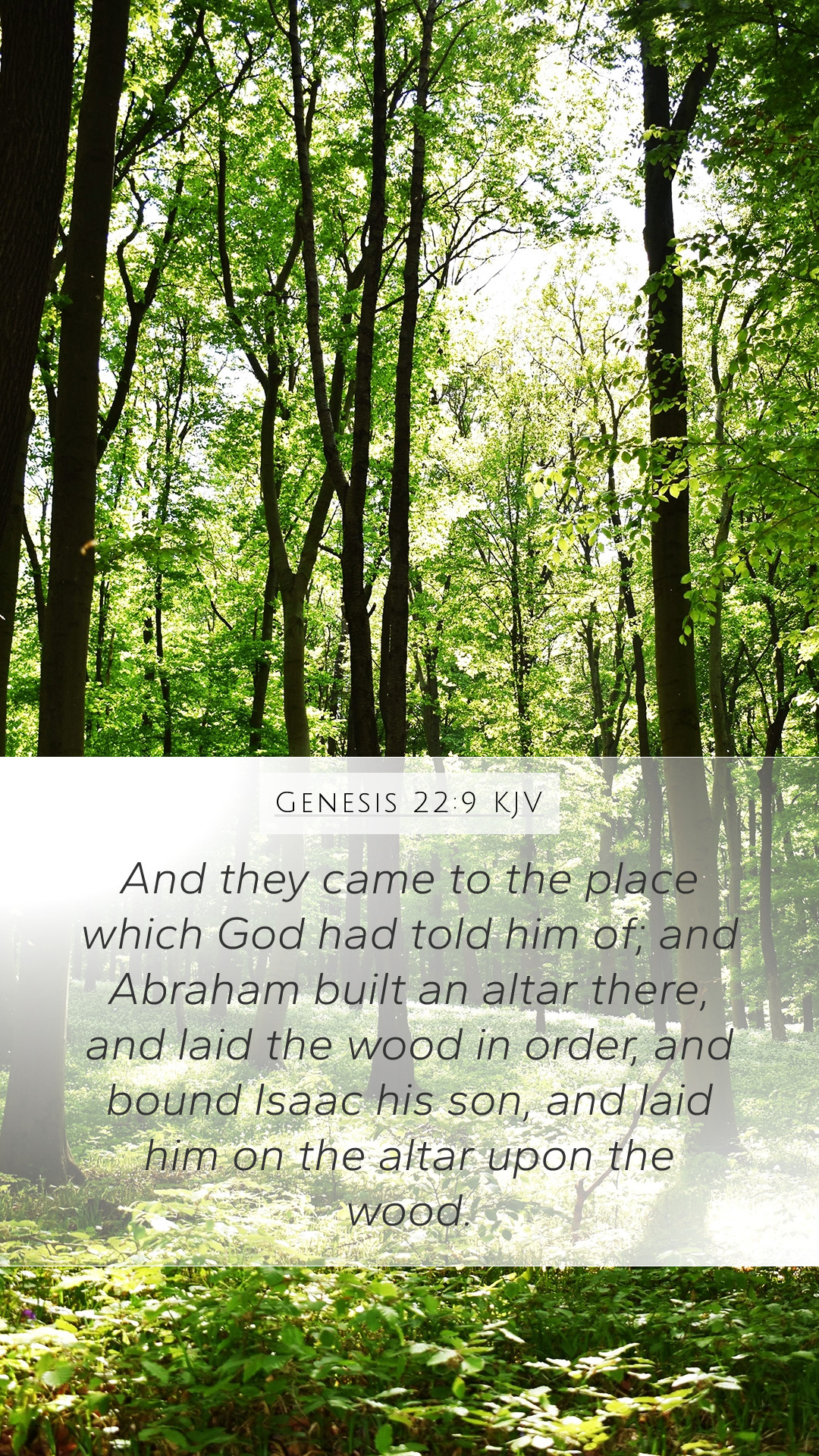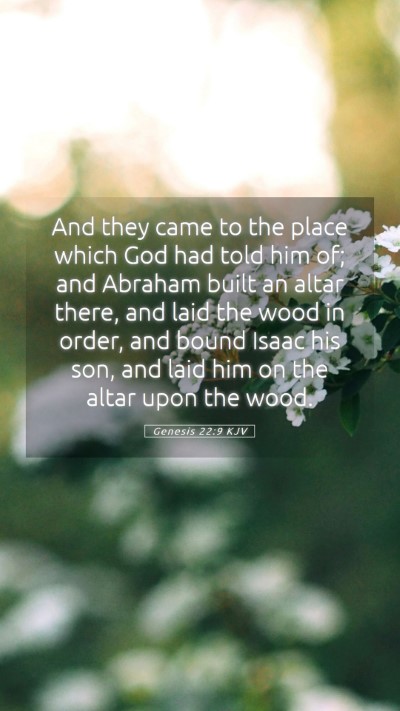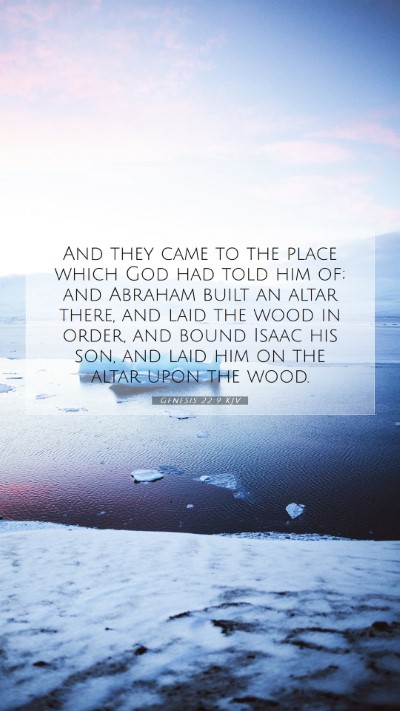Understanding Genesis 22:9
Genesis 22:9 is a pivotal verse in the story of Abraham's faith and obedience to God. This verse marks a critical moment in the narrative where Abraham prepares to sacrifice his son Isaac, highlighting themes of faith, obedience, and divine testing. Below is an analysis that combines insights from various public domain commentaries to provide a deeper understanding of this scripture.
Verse Context
The context of Genesis 22 flows from God's command to Abraham to offer Isaac as a burnt offering on Mount Moriah. The significance of this command is immense, as Isaac is not only Abraham's beloved son but also the child of promise through whom God's covenant would be fulfilled. The emotional and spiritual weight of this command sets the stage for Abraham's response and God's purposes.
Verse Text
Genesis 22:9 (KJV): "And they came to the place which God had told him of; and Abraham built an altar there, and laid the wood in order, and bound Isaac his son, and laid him on the altar upon the wood."
Commentary Insights
Matthew Henry's Commentary
Matthew Henry comments on this verse by emphasizing Abraham's unwavering obedience to God's command. He notes that Abraham’s preparation to sacrifice Isaac demonstrates not only his faith but also the extraordinary nature of the test he was enduring. Henry points out that Abraham laid the wood in order and bound Isaac, indicating his deliberate and willing participation in God's plan. This act reflects a profound loyalty and trust in God’s promise, which is essential in biblical teachings.
Albert Barnes' Notes on the Whole Bible
Albert Barnes provides a comprehensive analysis that focuses on the significance of the altar and the act of binding Isaac. He discusses the symbolism of the altar as a place of sacrifice and worship, illustrating Abraham's commitment to God. Barnes highlights the foreshadowing of Christ's sacrifice, as Isaac is seen as a type of Jesus, both being beloved sons offered up to God. This connection deepens the meaning of the text, emphasizing the themes of sacrifice and redemption.
Adam Clarke's Commentary
Adam Clarke's commentary delves into the emotional turmoil Abraham must have felt during this command. Clarke suggests that the binding of Isaac can also symbolize the submission of one’s will to God, as Isaac was not a mere victim but a participant in the fulfillment of God’s will. He reiterates that faith often involves pain and sacrifice, underscoring the spiritual lessons drawn from Abraham’s actions.
Thematic Analysis
- Faith and Obedience: Abraham's unwavering commitment illustrates the essence of faith, teaching readers the importance of obedience, even when the commands from God are challenging.
- Divine Testing: The event serves as a profound example of God testing His followers, asking them to demonstrate their faith through actions.
- Foreshadowing of Christ: This passage is often seen as a type pointing to the New Testament's revelation of Jesus Christ as the ultimate sacrifice, making the connection between the Old and New Testaments.
Cross References
- Hebrews 11:17-19: Discusses Abraham's faith as he was willing to sacrifice his son Isaac, reflecting on the belief in God’s ability to raise Isaac from the dead.
- James 2:21-23: Highlights Abraham's faith being demonstrated through his actions, giving insight into the relationship between faith and works.
- Romans 4:20-21: Explores Abraham's unwavering faith in God's promises, reinforcing the attributes of trust and hope in God's plan.
Conclusion
In summary, Genesis 22:9 is a profound verse that encapsulates themes critical to biblical understanding, including faith, obedience, and sacrifice. Through the lenses of Matthew Henry, Albert Barnes, and Adam Clarke, we see a multifaceted interpretation that encourages deeper reflection on our own faith journeys. For those engaging in Bible study, this verse serves as a rich resource for discussion on the nature of divine testing and the sacrificial nature of true faith.
Further Bible Study Resources
Engaging in a deeper understanding of Genesis 22:9 can be further enhanced through various Bible study tools and resources. Consider exploring:
- Bible study guides focused on Old Testament narratives.
- Online Bible study courses that dissect the book of Genesis.
- Discussion questions for Bible study groups that prompt reflection on obedience and faith.


